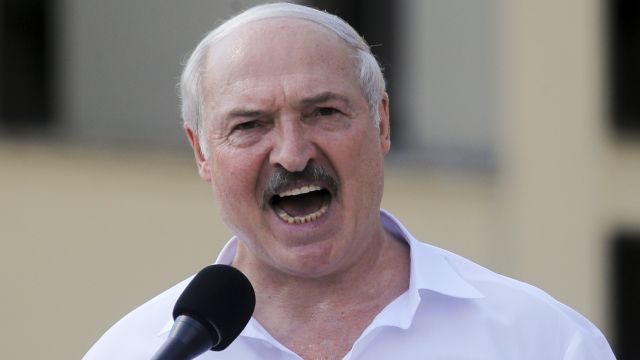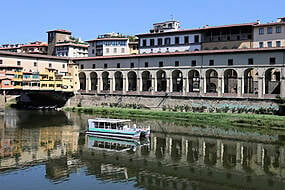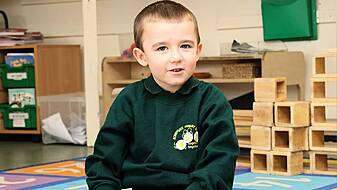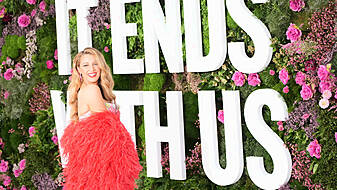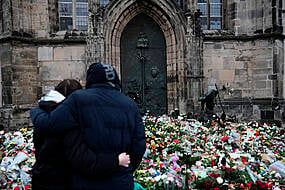He spoke at a rally of tens of about 50,000 supporters near the main government building in Minsk on Sunday.
Opponents countered with a far larger demonstration about 1.5 miles away that attracted as many as 200,000 people.
It was an eighth straight day of anti-government protests.
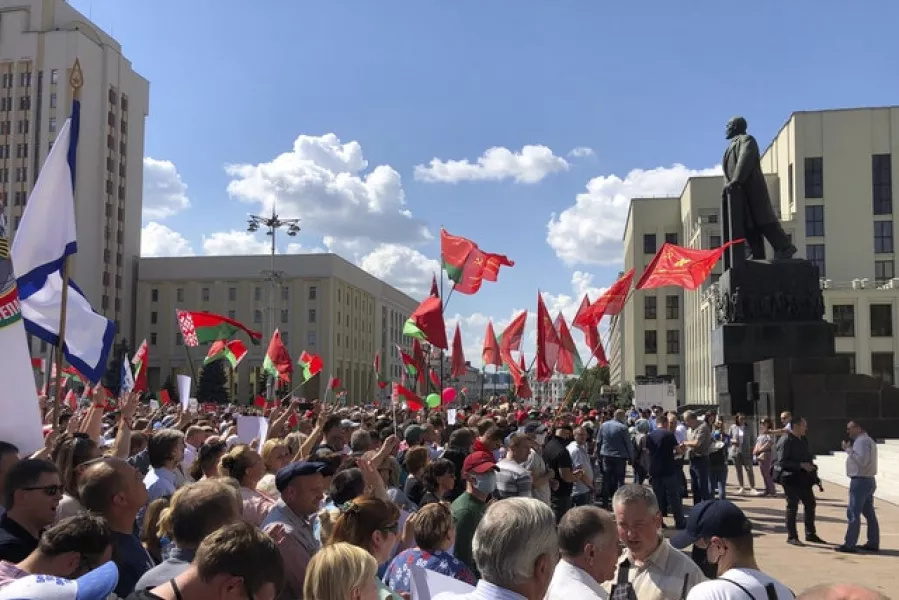
The authoritarian president has ruled the ex-Soviet nation with an iron fist since 1994, repressing opposition figures and independent news media.
But this year, fed up with the country’s declining living standards and Mr Lukashenko’s dismissal of the coronavirus pandemic, sustained anti-government protests before and after the August 9 presidential election have posed the biggest challenge to his 26-year rule.
On Sunday, the 65-year-old accused Western powers of interfering in his country’s sovereignty.
He claimed they were gathering military units in countries along Belarus’ western borders and denounced suggestions by some Western nations that Belarus should rerun its August 9 presidential vote, which opposition supporters say gave Mr Lukashenko a victory only through massive fraud.
Official results say he received 80% of the vote.
#NATO is closely monitoring the situation in #Belarus. As Secretary General @jensstoltenberg has said, fundamental freedoms must be respected, including freedom of speech & the right to peaceful protest. 1/2
Advertisement— Oana Lungescu (@NATOpress) August 16, 2020
“If we follow their lead (and rerun the election), we will perish as a state,” Mr Lukashenko declared Sunday, a day after saying he and Russian President Vladimir Putin has agreed Russia will send unspecified security assistance to Belarus if he asks for it.
In previous months, Mr Lukashenko had warned Mr Putin wants to take over Belarus, a nation of 9.5 million people in eastern Europe that has a long border with Russia.
Nato spokeswoman Oana Lungescu dismissed the president’s claim, tweeting there is no Nato buildup in the region.
“NATO’s multinational presence in the eastern part of the Alliance is not a threat to any country,” Ms Lungescu said.
“It’s strictly defensive, proportionate & designed to prevent conflict & preserve peace.”

Thousands have been arrested at the post-election protests, which police tried to put down with clubs, rubber bullets and flash grenades.
When many detainees were later released, they showed extensive bruises they said were due to police beatings.
Some protesters carried pictures of loved ones they said had been beaten so badly that they could not attend.
As Mr Lukashenko’s supporters waited for his appearance Sunday, many chanted his nickname of “Batka” – “Father”.
Throngs of opponents converged on a park about 1.5 miles away then, in the late afternoon, they streamed into the square vacated by Mr Lukashenko’s supporters.
In contrast to the first days of protest when large contingents of police and special forces were deployed against protesters, police appeared to be all but absent when the opposition supporters entered the square.
European Union foreign ministers have rejected the election results and on Friday began drawing up a list of officials in Belarus who could face sanctions.
If Mr Lukashenko was to resume a harsh crackdown, the response from the West could be even stronger.
